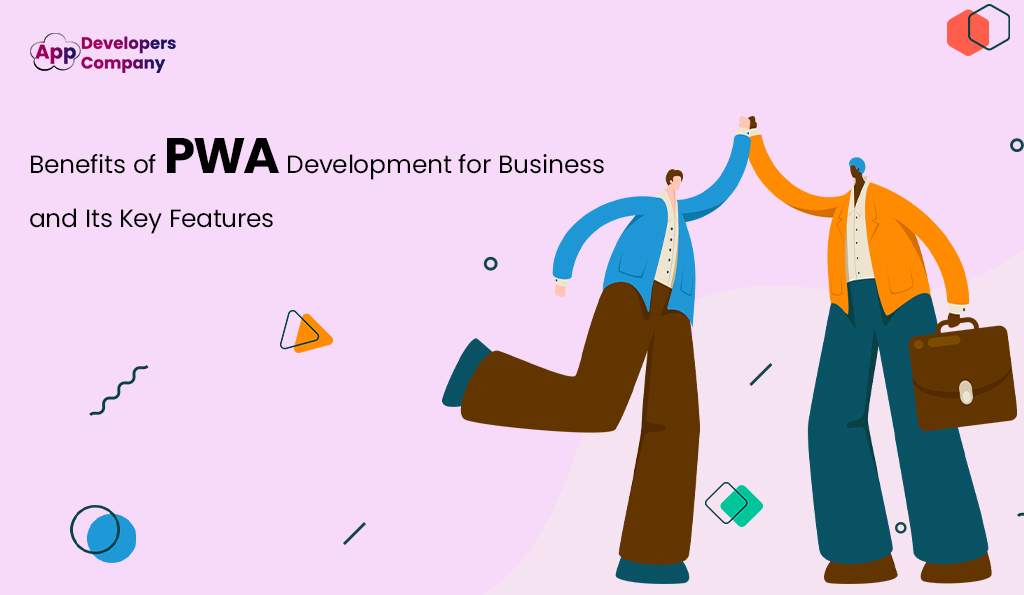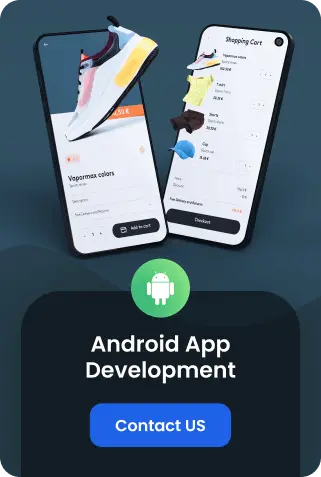In today’s fast-paced technological world, companies constantly seek out new methods to interact with their clients and increase their presence on the internet. Progressive Web Apps (PWAs) are proving to be a viable option to meet these objectives. PWAs are a combination of mobile and web technology, providing a variety of benefits that could positively affect companies across all industries and sizes. This article we’ll examine the main characteristics of PWAs, and then dive into the benefits they offer businesses.
Understanding Progressive Web Apps (PWAs)
Progressive Web apps are applications on the web which make use of modern web technologies to offer an experience that resembles apps to users. They’re built to work seamlessly across different devices and platforms, such as smartphones, desktops as well as tablets. PWAs are accessible through any web browser, without the requirement for users to install and download them from the app store and thus are easily accessible to a larger user base.
PWAs are created using a mix of HTML, CSS, and JavaScript and include additional features like service workers as well as manifest files which allow offline functions, push notifications and an immersive experience reminiscent of apps. This mix of technologies permits PWAs to deliver a wide range of advantages for both users and businesses alike.
Key Features of Progressive Web Apps
1. Offline Access
One of the most notable advantages of PWAs is the capability to function even if the user is not online or has a slow internet connection. This is possible thanks to the service worker, programs that are run within the background. They store the resources of the application. Users will be able to access certain features and information to ensure an uninterrupted user experience, regardless of the connection.
2. Responsive Design
PWAs are created to respond, meaning they can adapt to various sizes and orientations of screens. This means that users will enjoy the same experience across different devices, ranging from smartphones and Tablets to computers on desktops.
3. App-Like User Experience
PWAs offer an app-like user experience with smooth motions, gestures and user interfaces that are similar to native mobile applications. The immersive experience increases user engagement, and can lead to more frequent interactions with the application.
4. Cross-Platform Compatibility
PWAs are platform-agnostic which means they run on different operating platforms and browsers. This helps reduce the time and costs associated with creating applications for multiple platforms such as iOS Android app development. A single PWA is able to reach a larger public.
5. Fast Loading Speeds
PWAs are renowned for their speedy loading times due to strategies like pre-caching as well as improved asset delivery. Users can use the app fast, which results in higher levels of satisfaction for users and lower bounce rates.
6. Security
Security is an essential concern for both the user and the business. PWAs are delivered via HTTPS, ensuring encryption of data and security. Additionally, service personnel can check the integrity of the content and secure updates to resources.
7. Engaging Push Notifications
PWAs can send messages via push to their users even when the application is not in use. This feature enables businesses to engage users again, offer updates, and advertise new products or content effectively.
8. Search Engine Optimization (SEO)
PWAs are listed in search engine results, which makes them searchable via web searches. This can greatly increase the visibility of a company’s website and increase organic traffic to the application.
9. No App Store Barriers
In contrast to native apps, PWAs don’t require users to download and install the app from the store. This reduces the hassle associated with the app store approval process and boosts the probability of users embracing them.
10. Easy Updates
PWAs are regularly updated on the server side, ensuring that users always have access to the most recent version, without having to update the application manually to their mobile devices. This guarantees the same user experience for all users and minimizes the chance for compatibility problems.
11. Cost-Effective Development
The development of PWAs PWA is usually more affordable than creating separate native apps for every platform. Companies can save money on maintenance, development, and distribution expenses.
Benefits of PWA Development for Businesses
We’ve now covered the most important characteristics of PWAs, let’s take a look at the many benefits they can bring to companies:
1. Improved User Engagement
PWAs offer a fun user experience that encourages more time and frequent visits. Features such as push notifications and offline accessibility keep customers informed and up-to-date, which increases loyalty and increasing retention rates.
2. Increased Conversion Rates
Speedy loading times and an easy user experience lead to more conversion rates. When users can quickly use or interact with the application, they are more likely to buy or perform desired actions.
3. Wider Reach
With their cross-platform compatibility PWAs are able to connect with a wider population. Companies can target users on different operating systems and devices without having distinct development effort.
4. Lower Development Costs
Maintaining and constructing an entire PWA is typically more cost-effective than developing native apps for a variety of platforms. The cost-effectiveness makes PWAs an appealing choice for medium and small companies.
5. Faster Time-to-Market
The process of developing PWAs tends to be quicker than creating native applications. Businesses can develop their apps more quickly to ensure that they remain ahead of the pack and are able to meet the demands of customers quickly.
6. Improved SEO
PWAs can be indexed by search engines and are able to rank highly in results of searches. This improves a company’s online visibility and assists in attracting organic traffic, thus reducing dependence on paid ads.
7. Lower Bounce Rates
Speedy loading times and a similar user experience are the main factors in low bounce rates. The users are more likely to quit the app due to the slow performance or poor user interface.
8. Enhanced Security
Security is the top concern for both the business and its customers. The use of HTTPS as well as service worker in PWAs guarantees data security and integrity of content, thereby establishing trust with the users.
9. Reduced Dependency on App Stores
Companies can circumvent the approval process for apps by providing the option of a PWA. This gives them more influence over distribution as well as updates for their application, which reduces dependence on third party platforms.
10. Cost-Effective Maintenance
Maintenance of the PWA is easier and more efficient than managing native applications. Updates are implemented on the server side, eliminating the requirement of users downloading and installing updates.
11. Analytics and Insights
PWAs provide advanced analytics tools that permit companies to gain valuable insight about user behavior and preferences. These insights can help guide marketing strategies and enhance the application.
12. Improved User Ratings and Reviews
A more pleasant user experience, quicker loading times and less technical issues lead to higher ratings from users and higher reviews. This in turn, draws more customers and builds confidence on the reputation of the business.
Real-World Examples of Successful PWAs
A number of businesses have adopted PWA development and have seen significant positive results. Let’s look at a few noteworthy examples:
1. Twitter Lite
Twitter Lite is a PWA version of the well-known social networking platform. It provides a quick as well as responsive experience for users even when networks are slow. Twitter announced an increase of 65% in the number of pages per session, in addition to a 75% growth in tweets that are sent via Twitter Lite.
2. Alibaba
Alibaba.com One of the largest online marketplaces, has transformed its mobile site into an PWA. It resulted in a 76% rise in conversions across all browsers, and an increase of 14% in monthly active users using iOS devices.
3. Forbes
Forbes, a world-renowned business news publication, has embraced PWA technology to enhance the mobile web experience. The PWA reduced loading times to 0.8 seconds, and resulted in an increase of 43% in user sessions.
4. Flipkart
Flipkart is an important online retailer in India has launched an PWA to give customers an efficient and secure shopping experience. The PWA was able to achieve an increase of 70% in conversions as well as a 3x increase in the time spent on the website.
5. Trivago
Trivago, a search engine for hotels as well as booking sites, has implemented a PWA which provides a speedy and enjoyable user experience. It resulted in an increase of 97% in the number of clicks for hotel deals along with a 1500% rise in engagement of users.
These stories of real-world success illustrate the huge benefits companies can reap by adopting PWA development.
Considerations for Implementing PWAs
Although PWAs have many advantages companies should take into account a few elements when considering their implementation:
1. User Expectations
Understanding the expectations of users and their behavior is vital. Businesses must customize their PWA to satisfy the needs as well as preferences of the targeted users.
2. Development Expertise
It’s crucial to collaborate with skilled developers who know PWA development best techniques to ensure the success of your implementation.
3. Progressive Enhancement
PWAs need to be developed to gradually improve the user experience. It means people who have older browsers or less robust gadgets should still be able use the core features.
4. Performance Optimization
Continuously check and optimize your performance with the PWA. Continuously test and optimize loading times as well as responsiveness and user interaction.
5. Security Measures
Install strict security measures to guard information of users and ensure your PWA is delivered via HTTPS.
6. Offline Content
Take note of which features of your app could be used offline, and make sure that users get relevant content and features without the need for an internet connection.
Progressive Web Apps provide a powerful solution for companies looking to improve the visibility of their websites, connect with users, and boost conversion rates. With features such as offline access, app-like experience with cross-platform compatibility, as well as affordable development, PWAs are now increasingly popular for businesses of all sizes and in all industries.
When they embrace PWA development, companies can increase customer engagement, greater reach and savings in costs. Success stories from real-world businesses like Twitter, Alibaba, Forbes, Flipkart, and Trivago illustrate the profound impact PWAs can bring to key performance indicators.
But, success in implementation is dependent on careful consideration of users’ expectations, expertise in development and advancement in performance and security capabilities. When implemented properly, PWAs can be a revolution for businesses looking to prosper in a digital world offering an effortless and enjoyable user experience across the world.






